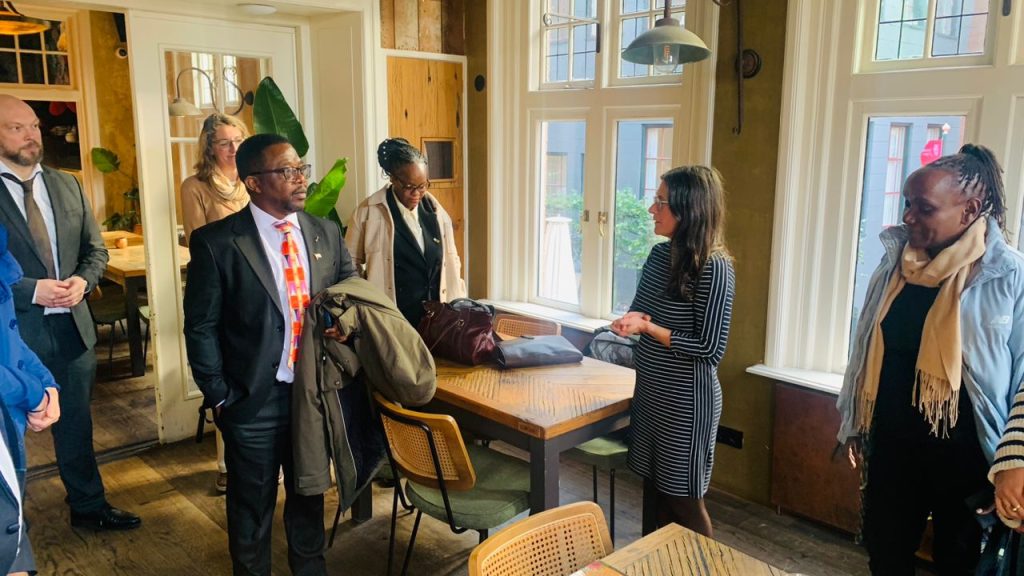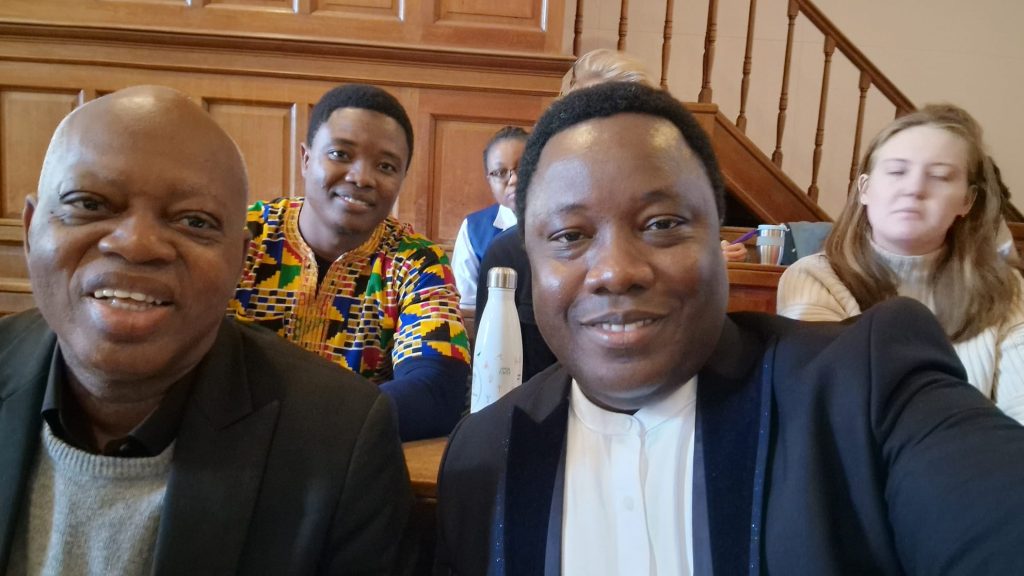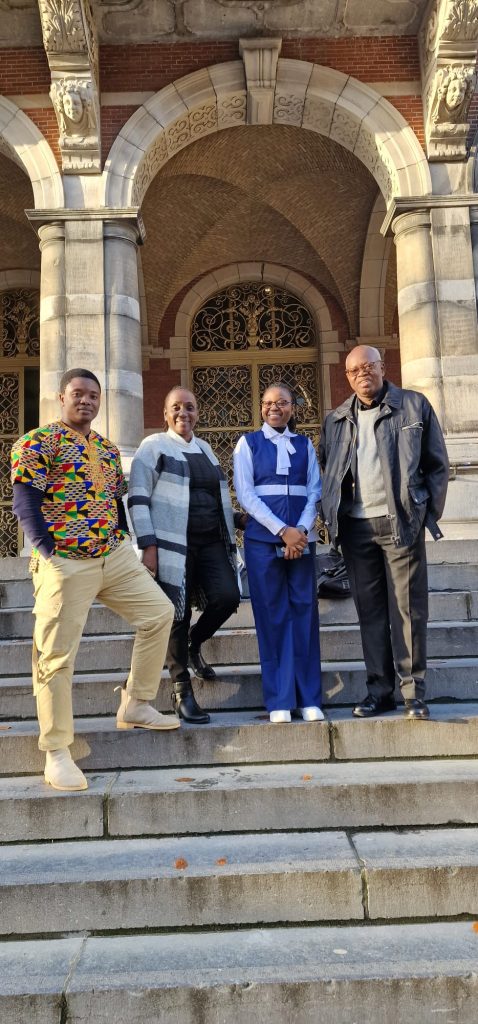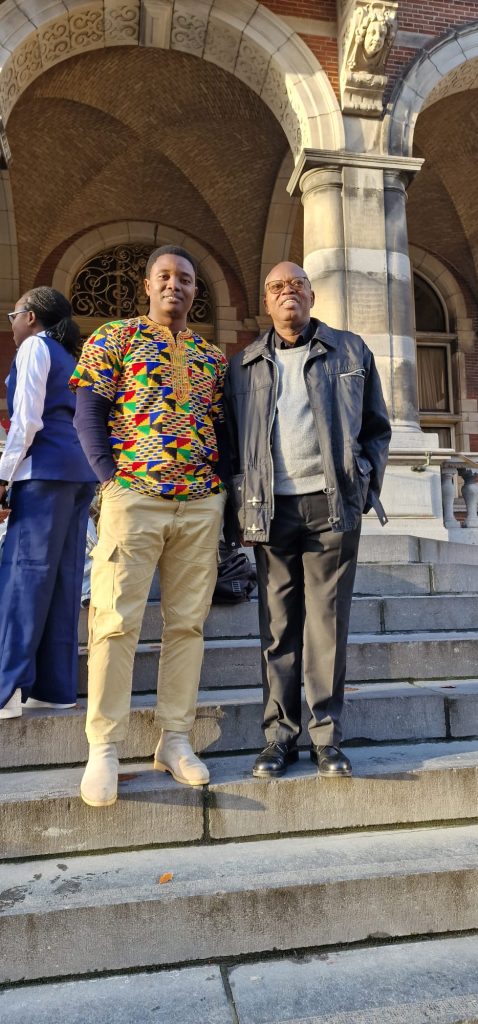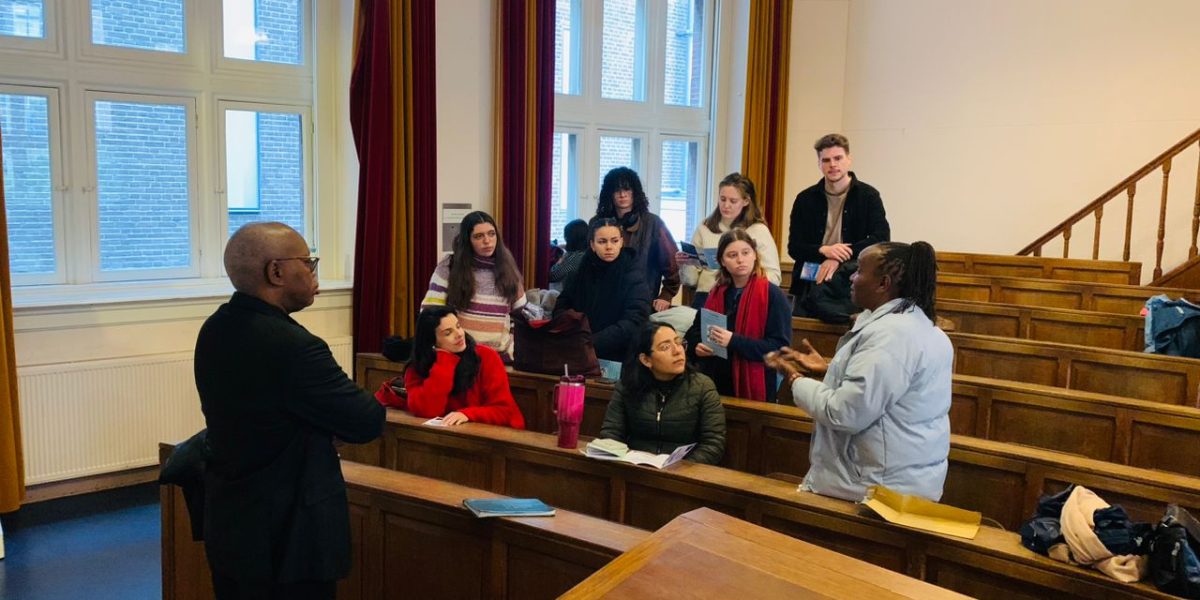Ambassador Philip Bob Jusu visited Groningen, the Netherlands, following an invitation from the University of Groningen, where he is an alumnus of the Network on Humanitarian Action (NOHA) master’s program. His visit coincided with the arrival of Professor Joseph Turay, Vice Chancellor; Ms. Mercy Mwaura, Director of International Relations from the University of Makeni; and two visiting students from UNIMAK.
The two-day program commenced on Tuesday, 28th October 2025, with tours and discussions at the Rudolf Agricola School and Aletta Jacobs School. During these engagements, Ambassador Jusu highlighted the crucial role that universities play in addressing global challenges through context-driven and interdisciplinary approaches.
Ambassador Jusu emphasized that global issues must always be viewed within their specific social, geographical, and historical contexts. He stated, “People in their own realities define global challenges,” contrasting the digital and technological concerns prevalent in Europe with the more fundamental needs for food, housing, and healthcare faced in many parts of Africa.
Professor Erik Buskens from the Aletta Jacobs School elaborated on the school’s methodology and the interdisciplinary, socially embedded model that NOHA promotes. The visit also included discussions with the University of Groningen’s International Strategy Relations team, featuring Drs. Erik Sportel and Anita Veltmaat, as well as the University’s President, Professor Jouke de Vries. Professor de Vries spoke about the University of Groningen, which has several faculties both within and outside the city. He highlighted the university’s reputation for fundamental research while also emphasizing its commitment to tackling global challenges through interdisciplinary research and education.
Ambassador Jusu informed the university officials that the visit was essential for exploring opportunities for continued partnerships in higher education, scientific research, and capacity building. He specifically mentioned areas aligned with Sierra Leone’s national development priorities, such as renewable energy, public health, governance, and climate resilience. He underscored the government’s dedication to advancing education and human capital development as key components of Sierra Leone’s growth agenda. Additionally, he commended the University of Groningen’s ongoing efforts to bridge science and society, promote interdisciplinary collaboration, and foster mutual understanding.
Professor Joseph Turay reflected on the role of universities in addressing global challenges, emphasizing that these challenges should always be understood in their respective contexts, geography, and history. He noted that, while Europe and America may prioritize digital transformation and technological advancements, Africa often faces more pressing issues related to basic needs such as food, housing, and healthcare. Ms. Anita Veltmaat explained her department’s aim to expand its reach in Africa and emphasized the need for joint research programs.

